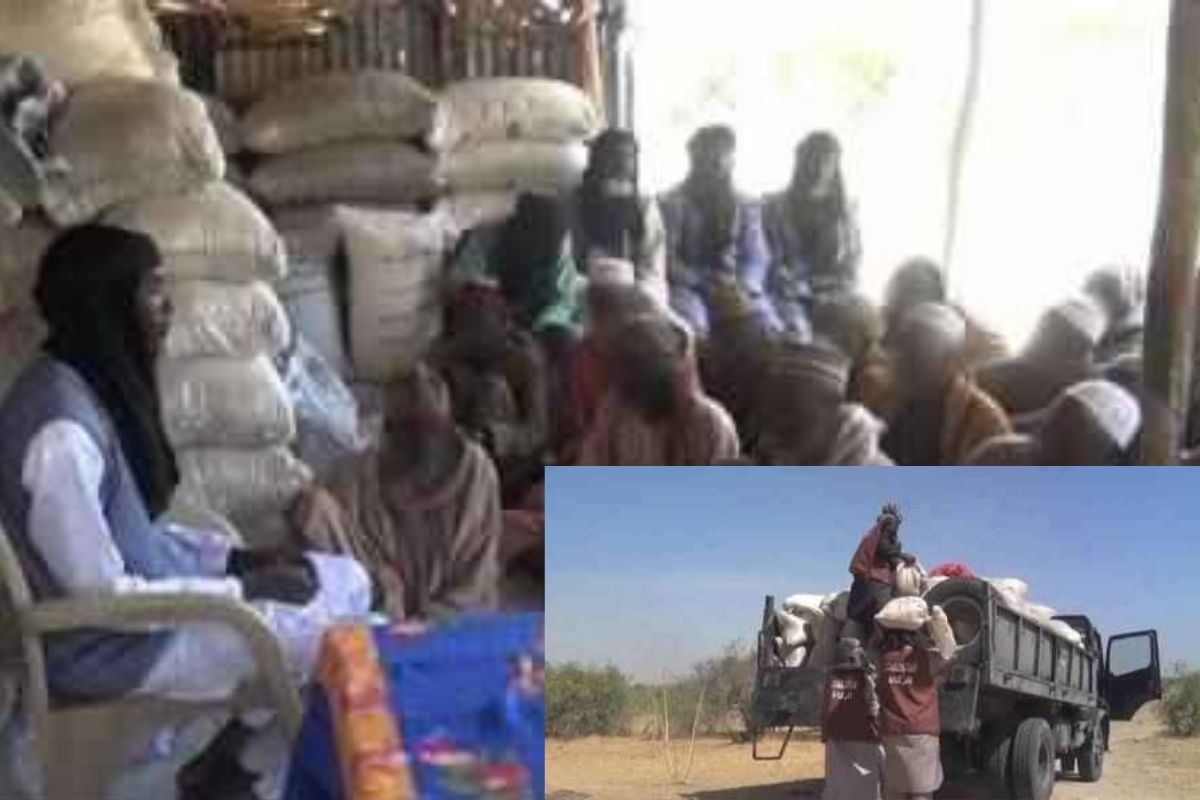The Boko Haram sect, Islamic State West African Province (ISWAP) have donated food items to some Borno and Yobe state residents.
According to reports, rice, beans millet, maize, sugar, spaghetti and cash gifts were among the packages distributed to the residents by the insurgents. The kind gesture was to persuade the villagers to commit to the group’s ranks as militants, a security source said;
“Imagine, they (insurgents) claimed that the gesture was aimed at assisting villagers to perform Ramadan fast and Sallah with ease and happiness, the same villagers they killed their friends and family members,” the source said.
According to a 2019 report by the International Crisis Group, a non-profit think tank, ISWAP’s approach to hiring new fighters was successful. Despite breaking away from the Abubakar Shekau-led Boko Haram party in 2016, figures show that its population had nearly doubled that of the latter.
“Although its leadership has been largely ethnic Kanuri, ISWAP has recruited significantly among lacustrine communities, notably the ethnic Buduma, many of whom earn a living from fishing,” the group wrote.
The Institute for Security Studies (ISS) has made similar observations.
“As part of this approach, the ideological aspect of the crisis must be dealt with. The ability of the group to recruit is one of the biggest reasons for its expansion, and so a deeper understanding of its recruitment patterns and operating mechanisms is crucial,”
In May 2019, ISS senior researcher Remadji Hoinathy issued an alert. ISWAP also exploits accountability vulnerabilities by attempting to demonstrate that it can deliver basic services in the areas under its jurisdiction.




